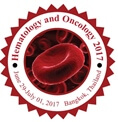Ghulam Mustafa
University of Health Sciences, Pakistan
Title: Single Nucleotide Polymorphism of P2RY12 and CYP3A5 Genes in Clopidogrel Resistant and Non-Resistant Ischemic Heart Disease Patients
Biography
Biography: Ghulam Mustafa
Abstract
Background: Antiplatelet therapy with clopidogrel is generally used to decrease the risk of ischemic heart disease. Environmental and genetic factors including SNPs in CYP3A5 and P2RY12 genes are attributed for this inter-individual variation in response to drug.
Objective: To examine the role of CYP3A5 rs776746 and P2RY12 rs2046934 polymorphisms in clopidogrel resistance in IHD patients.
Methods: A total of 237 IHD patients were recruited who had received 75mg clopidogrel for more than 07 days. Platelet aggregation studies were performed on Innovance® PFA-200 system. The rs776746 and rs2046934 polymorphism were determined by PCR-RFLP.
Results: Out of selected IHD cases, 85.7% were clopidogrel responders and 14.3% were non- responders. Genotype for CYP3A5 responder, 5.4% were homozygous (*1/*1), 89.7% were heterozygous (*1/*3) and 4.9% were homozygous (*3/*3). Non-responders CYP3A5 indicated that 8.8% were homozygous (*1/*1), 64.7% were heterozygous (*1/*3) and 26.5% were homozygous (*3/*3). The allele frequencies difference among responders and non-responders were highly significant (p<0.05). P2RY12 genotypes with clopidogrel responder patients showed that 78.3% were TT alleles, 19.7% were CT alleles and 2.0% were for CC alleles. Similarly, non-responder patients showed 91.2% were with TT alleles, 8.8% were CT alleles and no patient were with CC alleles. So, these frequencies difference in alleles among clopidogrel responder and non-responder P2RY12 patients were not statistically significant (p>0.05).
Conclusion: The allele CYP3A5*3/*3 showed a significant association with clopidogrel resistance whereas, P2RY12 did not show association with clopidogrel resistance in studied samples.

